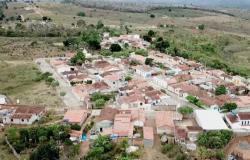The municipal secretary of Economic and Solidarity Development (SEDES), Diego Zeidan, participated this Thursday (25) in a meeting at the Rio Chamber to present details of the PL 2726/2023of the Executive Branch, which establishes the Public Policy to Incentive the Creation and Implementation of the Carioquinha Social Currency and the Popular Community Bank in the municipality. Implementation costs, benefits for the population and freedom of commercialization were the main topics discussed.
Zeidan explained that Moeda Social Carioquinha will work with a prepaid digital account to receive social benefits, for restricted use in the municipality, in the format of an application on a cell phone or magnetic card, to be operated by Banco Comunitário Popular. The secretary clarified that the bank, despite having that name, is more similar to a financial Fintech, “only non-profit”, functioning as a payments arrangement, “in which all profits will be invested in financing social projects and offering lines of credit for local merchants”, he said.
The head of SEDES assured that the city hall will only make the initial structure and operational contribution, but that the objective is for the banks, over time, to be able to sustain themselves. “After a public call to select an institution with expertise in the market to incubate the bank, the idea is that it can be managed by the citizens themselves, selected from the communities where it operates,” he added.
Councilors Edson Santos (PT), who chaired the meeting, and Átila Nunes (PSD), government leader in the Chamber, questioned the operational costs of the proposal, what the registration process for local traders will be like and what the area of coverage will be. of social currency. Diego Zeidan stated that the city hall estimates a cost of R$3 million per bank, with an initial forecast of two institutions per Planning Area. Therefore, the total estimate is R$30 million/year.
Regarding the registration of local entrepreneurs, Zeidan said that there will be an active search for traders to join the policy and regularize themselves, if they operate informally, “which will result in the inflow of currency from the collection of taxes by the City Hall”, he highlighted. Regarding the coverage area of the social currency, he claimed that it will be municipal in scope, but only with previously registered companies, whose CNPJ is issued in the city of Rio de Janeiro. “In this way, we will stimulate commerce and entrepreneurship in the community, since beneficiaries will only be able to use Moeda Carioquinha in registered businesses, and these traders can use credit in the community itself or exchange the social currency for real”.
Pedro Duarte (Novo) said he saw no advantage in receiving the benefit in social currency. According to the parliamentarian, the lack of accredited traders can restrict the purchasing power of the currency, forcing citizens to consume in places that do not always have the most advantageous prices. “I have difficulty understanding the advantages of the proposal, since the citizen is restricted to spending the benefit, previously paid in reais and accepted anywhere, only in the accredited network. Furthermore, the city hall does not make it clear how the return of these R$30 million invested in community banks will be, how this will be reverted to the entire city”, he pointed out, adding that he intends to present amendments.
The councilors agreed that the proposed amendments will be negotiated with the city hall so that the project can be voted on in the first half of May. In addition to councilors Junior da Lucinha (PSD), Marcio Santos (PV) and Welington Dias (PDT), employees from SEDES and the Municipal Finance Department participated in the meeting.






